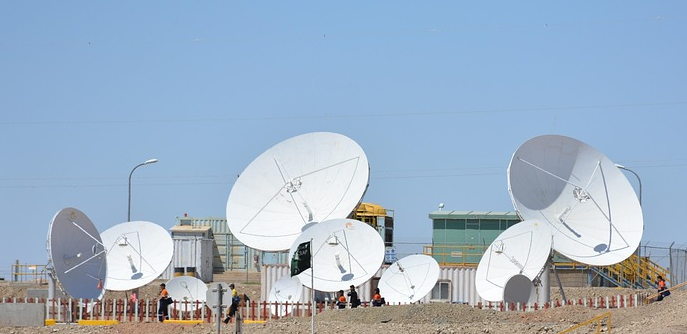Since the New Year, Christian TV Noe has not been part of the satellite broadcasting on Astra, and just a day later A11, which is primarily oriented towards Czech regions, also left it. As this frantic start to the year calmed down, Očko TV followed suit in early March. In recent days and weeks, a pair of S&P Broadcasting's programmes - Mňam TV and Hobby TV - have been taken off air. A dry listing of these stations could easily give the impression that satellite signal distribution in the Czech Republic is coming to an end, especially at a time when some programmes are being switched from high to standard definition.
However, the above list of stations needs to be looked at more comprehensively and taken on a case-by-case basis. TV Noe dealt with the distribution of the signal individually. Its signal was distributed freely on Astra and, given the availability of full-screen DVB-T2 broadcasting, did not make sense in the long term. This could also be the case for TV A11, which, however, is also suffering from financial problems, so its departure from the Astra satellite can be seen as purely economic. This is also true for the pair of Mňam TV and Hobby TV, where the operator Skylink itself pointed out that their operator had not fulfilled its contractual obligations for a long time. The distribution of 'Red Óček' on the Astra satellite did not make sense in the long term with regard to the target group.
Satellite distribution cannot be switched off just like that
Should satellite broadcasting be terminated in the future, it cannot be switched off overnight. The reason for this is quite simple - satellite capacity holders are tied to their customers, in particular operators, for a long time to come. Distribution agreements are always a matter of several years, and if something like a transfer of customers from satellite to the Internet were to take place, it would no doubt be known long in advance. Both Skylink and Telly operators dismissed the idea of leaving satellite broadcasting as speculation to MediaGuru.cz. They do not comment on the details of distribution agreements.
Despite the fact that surveys presented at various professional conferences and by some agencies have long suggested a decline in interest in satellite TV, the whole matter should be looked at with a cool head. One of the reasons for maintaining the distribution of Czech programmes from satellite is the lack of quality internet signal coverage throughout the Czech Republic, for example, despite massive advertising campaigns trying to convince TV viewers otherwise. Moreover, maintaining the distribution of part of the programmes via the classical route also makes sense with regard to the stability of the entire broadcasting infrastructure and possibly also for crisis moments, which cannot be ignored.
T-Mobile is close to switching off satellite TV
All indications are that T-Mobile is the closest operator to abandon satellite broadcasting. The satellite variant of Magenta TV is currently mainly used by customers without internet access or those who cannot use it for various reasons. According to information provided by external communications specialist Johana Valtrova, these users make up approximately 5-6% of the total number of Magenta TV customers, which at the end of last year numbered 293,000.
Given the overall trend of declining interest in satellite broadcasting among its customers, T-Mobile is considering the future consolidation of this service. The move may be a response to the changing preferences of clients, who are increasingly opting for internet streaming services instead of traditional satellite broadcasting. As a result, T-Mobile must carefully consider how best to adapt its offering to changing market needs while ensuring continuity of service for customers who depend on satellite broadcasts due to limited Internet access.
Jump to Germany
To get an overall picture of the situation surrounding satellite TV, we can jump to neighbouring Germany and Austria, where media group ProSiebenSat.1 has strengthened its signal distribution agreement with SES Astra. In a press release issued on 28 February, the market of our western neighbours is already exclusively covered by high-definition programmes and the strengthening of the encrypted HD+ package. In contrast, Austria mentions ProSiebenSat.1 also in connection with standard definition programmes. This is also key information for viewers in the Czech Republic. These stations are in fact, unlike the HD mutations, available from Astra completely free of charge.
However, the press release did not mention one of the key things - namely, for how long the contract for both markets has been concluded. But even in the two German-speaking markets, the deal stretches a strong line of internet distribution. Indeed, the Joyn streaming platform will be implemented as part of the offering for HD+ customers.
It follows from the above that no one is pushing for the end of satellite TV not only in the Czech Republic but also in our neighbours, and no one is planning to do so in the near future. The development of technology itself will show in the future whether it will actually happen.
Source: mediaguru.cz

